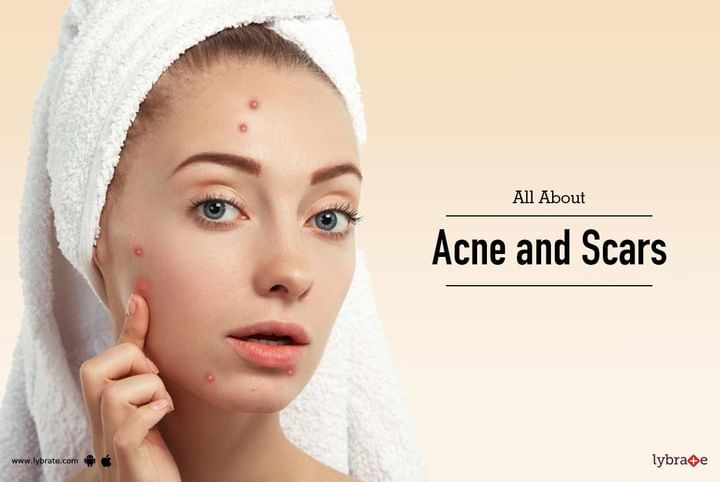All About Acne and Scars
Acne is one of the most common skin problems. As many as one in two people suffer from the condition. Acne vulgaris is the most common type followed by acne rosacea and more severe acne conglobate. More boys than girls suffer from acne and it often co-occurs with the onset of puberty, as testosterone levels rise. It is likely that there is some hormonal involvement in the condition, yet dietary and environmental factors, stress and gut health can all cause acne.
It's a disease that affects the skin's oil glands. The small holes in your skin (pores) connect to oil glands under the skin. These glands make an oily substance called sebum. The pores connect to the glands by a canal called follicle. Inside the follicles, oil carries dead skin cells to the surface of the skin. A thin hair also grows through the follicle. When a follicle clogs up, acne grows. Acne is not a serious health threat, but it can cause scars.
How Does Acne Develop?
Sometimes, the hair, sebum, and skin cells clump together into a plug. The bacteria infect the plug and causes swelling. Then, as the plug starts to break down, it leads to acne. There are many types of acne. The most common types are:
- Whiteheads. A whitehead is a type of acne that forms when dead skin cells, oil, and bacteria become trapped within one of our pores.
- Blackheads. Blackheads are a specific kind of dark acne lesion, so-called because they contain oxidized melanin, the pigment made by skin cells called melanocytes.
- Papules. These are small pink bumps that can be tender.
- Pustules. This type of acne is red at the bottom and has pus-filled head.
- Nodules. These are large, painful, solid acne that are deep-rooted in the skin.
- Cysts. These are deep, painful, pus-filled acne that can cause scars.
Who Gets Acne?
Acne is the most common skin condition. People of all races and ages get acne. But it is most common in teenagers and young adults. An estimated 80 percent of all people between the ages of 11 and 30 have acne outbreaks at some point. Some people in their forties and fifties still get acne.
What Causes Acne?
The cause of acne is unknown. However, there are certain factors that might cause acne:
- The hormonal surge in teenage (this can cause the oil glands to plug up more often).
- Hormonal changes during pregnancy.
- Use of birth control pills.
- Heredity (if your parents had acne, you might get it, too).
- Certain types of medications.
- Greasy makeup.
Here are some tips for acne-affected skin:
- Clean skin gently.
- Try not to touch your acne affected area.
- Shave carefully.
- Protect your skin from sun-exposure.
- Choose makeup carefully.
- Shampoo your hair regularly.
What Can Make Acne Worse?
- Changing hormone levels in teenage girls and women 2 to 7 days before their period starts.
- Pressure from bike helmets, backpacks, or tight collars.
- Pollution and high humidity.
- Squeezing or picking at acne.
- Hard scrubbing of the skin.
Acne may or may not lead to scarring. Some people are more prone to scarring than others. A person may have rather severe acne without a scar in sight. For others, even a benign little blemish can leave a depressed pockmark. Early treatment is the best way to prevent scars. If you are highly prone to scarring, see a Cosmetic physician or dermatologist right away to discuss acne treatment options. He or she can layout a treatment plan, to heal breakouts and prevent or treat scars.
Treatment of Acne and Scars:
Acne is treated by a cosmetic physician or a dermatologist. Treatment attempts to:
- Heal acne.
- Prevent new breakout.
- Prevent scarring.
Acne requires a proper medical treatment and post acne care for dark spots/scars which are commonly associated with acne. If your skin is acne prone, you may develop dark spots and scars too. All these conditions can be treated. Apart from medical treatment which includes ointments for local application and oral medications if required, for long term benefits advanced treatments are available. These are, Chemical peels, RF therapy and enriched oxygen therapy. These are highly recommended. These treatments help acne as well as spots and scars.



+1.svg)
